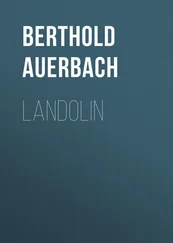Berthold Auerbach - On the Heights - A Novel
Здесь есть возможность читать онлайн «Berthold Auerbach - On the Heights - A Novel» — ознакомительный отрывок электронной книги совершенно бесплатно, а после прочтения отрывка купить полную версию. В некоторых случаях можно слушать аудио, скачать через торрент в формате fb2 и присутствует краткое содержание. ISBN: , Жанр: foreign_antique, foreign_prose, на английском языке. Описание произведения, (предисловие) а так же отзывы посетителей доступны на портале библиотеки ЛибКат.
- Название:On the Heights: A Novel
- Автор:
- Жанр:
- Год:неизвестен
- ISBN:http://www.gutenberg.org/ebooks/33294
- Рейтинг книги:4 / 5. Голосов: 1
-
Избранное:Добавить в избранное
- Отзывы:
-
Ваша оценка:
- 80
- 1
- 2
- 3
- 4
- 5
On the Heights: A Novel: краткое содержание, описание и аннотация
Предлагаем к чтению аннотацию, описание, краткое содержание или предисловие (зависит от того, что написал сам автор книги «On the Heights: A Novel»). Если вы не нашли необходимую информацию о книге — напишите в комментариях, мы постараемся отыскать её.
On the Heights: A Novel — читать онлайн ознакомительный отрывок
Ниже представлен текст книги, разбитый по страницам. Система сохранения места последней прочитанной страницы, позволяет с удобством читать онлайн бесплатно книгу «On the Heights: A Novel», без необходимости каждый раз заново искать на чём Вы остановились. Поставьте закладку, и сможете в любой момент перейти на страницу, на которой закончили чтение.
Интервал:
Закладка:
Countess Irma, who was somewhat annoyed by her questions, said:
"I wished to ask you something-can you write?"
"I once could, but I've quite forgotten how."
"Then I've just hit it! that's the very reason for my coming here. Now, whenever you wish to write home, you can dictate your letter to me, and I will write whatever you tell me to."
"I could have done that, too," suggested Mademoiselle Kramer, timidly; "and your ladyship would not have needed to trouble yourself."
"No, the countess will write for me. Shall it be now?"
"Certainly."
But Walpurga had to go to the child. While she was in the next room, Countess Irma and Mademoiselle Kramer engaged each other in conversation.
When Walpurga returned, she found Irma, pen in hand, and at once began to dictate.
"Dear husband, dear mother, and dear child. No, stop! don't write that! Take another sheet of paper. Now I've got it, now you can go on."
"I wish to let you know, that by the help of God, I arrived here safe and sound, in the carriage with the four horses. I don't know how. And the queen's an angel, and there were millions of lights, and my child-"
Walpurga covered her face with both hands-she had said "my child," without knowing which child she meant.
A pause ensued.
"And my child," said Countess Irma, repeating the words after her.
"No!" exclaimed Walpurga, "I can't write to-day. Excuse me; there's no use trying. But you've promised to write for me to-morrow or the day after. Do come and see us every day."
"And shall I bring a good friend with me?"
"Of course; any friend of yours will be welcome. Isn't it so. Mademoiselle Kramer?"
"Certainly; Countess Irma has special permission."
"I'll bring a very good friend with me; she can sing charmingly, and her voice is soft and gentle-but I'll not torment you with riddles; I play the zither, and will bring mine with me."
"You play the zither?" exclaimed Walpurga, scarcely able to contain herself for joy.
Any further expressions on her part were prevented by the presence of the king, who entered at that moment.
With a gentle inclination of the head, he greeted Countess Irma, who had risen from her seat and bowed so low that it seemed as though she meant to sit down on the floor.
"What are you writing?" asked the king.
"Walpurga's secrets, may it please Your Majesty," replied Countess Irma.
"The king may read all that's there," said Walpurga, handing him the sheet.
He hurriedly ran his eye over it, and then, with a glance at the countess, folded it and put it in his breast pocket.
"I shall sing with Walpurga," said Irma, "and Your Majesty will again observe that music is the highest good on earth. Singing together, Walpurga and I are equals. The creations of other arts, poetry especially, may be translated by every one into his own language, according to the measure of his knowledge and experience."
"Quite true," replied the king; "music is the universal language, the only one that requires no translation, and in which soul speaks to soul."
While they were thus talking, Walpurga stared at them in dumb amazement.
The king, accompanied by Countess Irma, looked at the prince for a little while, and then, having said: "The christening will take place next Sunday," he withdrew.
It was with a strange expression that Walpurga's eyes followed the king and then rested in earnest gaze upon Countess Irma.
The countess busied herself with the papers, and then, with cheerful voice, took leave of Walpurga. Her cheerfulness almost seemed constrained, for she laughed while there was nothing to laugh at.
For a long while, Walpurga stood looking at the curtains, behind which the countess had disappeared, and at last said to Mademoiselle Kramer:
"You told the truth, when you said that the palace isn't a church."
She did not enter into any further explanation.
"I will teach you how to write," said Mademoiselle Kramer; "it will be pleasant employment for us, and you will then be able to do your own writing to your family."
"Yes, that I will," said Walpurga.
CHAPTER XIV
"I want to ask a favor of you," said Walpurga to Countess Irma, the next day. "Always tell me frankly whenever I do anything wrong."
"Quite willingly; but, in return, you must always tell me when I-"
"Then I've something on my heart, this very moment."
"Speak out."
"Some time when we're alone together, I will."
"Pray, dear Kramer, would you oblige me by retiring for a few moments?"
Mademoiselle Kramer went into the adjoining room, and Walpurga could not help feeling astonished when she observed how, in the palace, people were pushed hither and thither, just like so many chairs.
"And now, what is it?" inquired the countess.
"You won't think ill of me, if I say anything foolish; you're sure you won't?"
"What is it?" asked Irma again.
"You're so beautiful, so very beautiful; more so than any one I've even seen; you're even more beautiful than the queen-no, not more beautiful, but more powerful, and your eyes are full of kindness-"
"Well what is it? speak out."
"I'd rather think I'm wrong; but it's best to feel sure. Well, I didn't like the way you and the king looked at each other yesterday; while your hand was on the cradle-rail, he placed his upon it; and he's a husband and a father. You're an unmarried girl, and don't know what it means when a man looks at you in that way; but I'm a married woman, and it's my duty to warn you. You said that we'd be good friends, and now there's a chance to test our friendship."
Irma shook her head, and replied:
"You mean well enough; but you're mistaken. The king has a noble heart and, since the birth of his son, would like to make every one as happy as he is himself. He loves his wife dearly and, as you have seen for yourself, she's an angel-"
"And if she weren't an angel, she's his wife and the mother of his child, and he must be true to her; for with every glance he gives another woman he's a confounded adulterer, whose eyes ought to be put out. Look here! If I were to think that my husband could do such a thing-but the men are wicked enough to do anything-that a man could stand by the cradle of his new-born babe, and let the same eyes with which he had just been looking at his child tell another woman, 'I love you,'-if I were to think that, I'd go mad. And if a man whose hand has pressed that of a woman not his wife, can offer his hand to that wife, or touch his child's face with it, the world in which such things could happen ought to be burned up and the Lord ought to shower pitch and brimstone down on it."
"Speak softly, Walpurga; don't scream so. Don't let such words pass your lips. You are not here to look after our morals, nor is it for you to pass judgment. What do you know of the world? You've not the slightest idea of what politeness means."
Countess Irma's words were harsh and severe, and had deeply humbled Walpurga.
"Now that you know who you are and what you are about, I've something more to tell you: I forgive you for insulting the king and myself with your silly talk. If I didn't pity your ignorance, I would never speak to you again; but, as I feel kindly disposed toward you, and know that you meant no harm, I shall give you a bit of advice. No matter what may happen, don't concern yourself about it. Attend to your child, and let no one induce you to speak ill of others. Take my word for it-here, all are deceitful. They are ever ready to speak ill of one another, and unless you are very careful you'll not have a friend in the whole palace. Mind you don't forget what I've said to you. And now I must thank you once more for having spoken to me as you did. You meant it all well enough, and it is proper that you should be perfectly frank. I shall always be your good friend. Although one treats the king respectfully, he is, nevertheless, as good as your Hansei, and I'm as good as you. And now, let's shake hands! Let bygones be bygones. Whatever you do, not a word of this to Kramer; and don't forget that, hereabouts, the walls have ears."
Читать дальшеИнтервал:
Закладка:
Похожие книги на «On the Heights: A Novel»
Представляем Вашему вниманию похожие книги на «On the Heights: A Novel» списком для выбора. Мы отобрали схожую по названию и смыслу литературу в надежде предоставить читателям больше вариантов отыскать новые, интересные, ещё непрочитанные произведения.
Обсуждение, отзывы о книге «On the Heights: A Novel» и просто собственные мнения читателей. Оставьте ваши комментарии, напишите, что Вы думаете о произведении, его смысле или главных героях. Укажите что конкретно понравилось, а что нет, и почему Вы так считаете.












